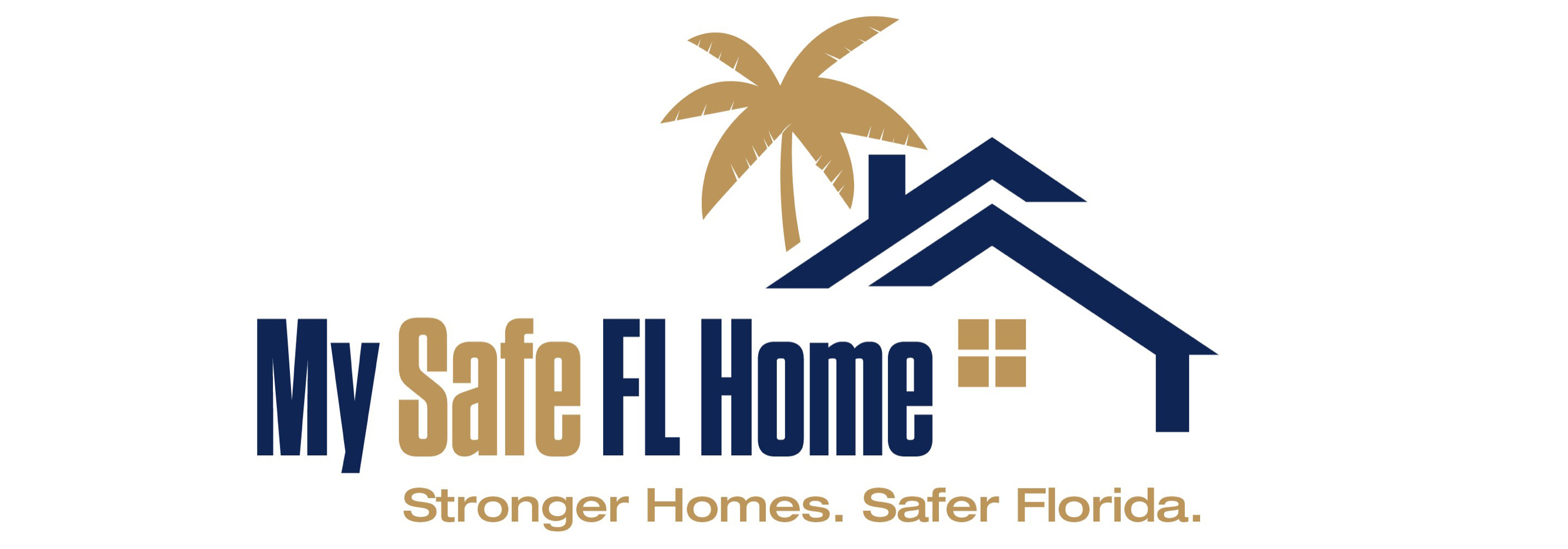Approvals Going Out for $10K Improvement Grants
TALLAHASSEE, Fla. – Florida homeowners seeking up to $10,000 in state funding for windstorm protection improvements are already being notified that they’ve been approved for the matching grant.
An approval means that homeowners who spend $15,000 on improvements are eligible to get $10,000 and reduce their project cost to $5,000.
There’s a newly disclosed catch: To get reimbursed, homeowners will have to pay their contractor in full for the job and submit a reimbursement invoice along with proof of full payment to the contractor. That’s different than what program officials said a few weeks ago.
But 0% short-term financing options are available that will cover the cost until the reimbursement check arrives, contractors say.
The My Safe Florida Home program, funded by the state Legislature last May, began accepting applications for windstorm mitigation inspections on Nov. 18. With $115 million earmarked for grants, the program estimated that 11,000 to 12,000 homeowners would be approved for up to $10,000 each.
Homeowners can begin the grant application process by requesting an inspection at mysafeflhome.com or calling (866) 513-6734.
Grant funding is being made available on a first-come, first-serve basis, and 13,840 inspection applications were in some “form of status” as of Jan. 4, according to a program official.
Windstorm mitigation inspections to identify improvements needed to bring homes up to modern construction codes were quickly scheduled for earliest applicants, and inspection reports identifying qualifying improvements started going out a week or two later.
Upon receiving inspection reports, applicants were invited to apply for grants of up to $10,000 each, and this week, the program began notifying earliest applicants that they have been approved.
As of Jan. 4, about 5,160 inspections have been completed, and 213 grant applications have been submitted. The low number of grant applications suggests that a majority of applicants are still awaiting their inspection reports.
The program offers $2 in state funding for every $1 homeowners contribute for improvements that include impact-resistant windows, exterior doors and garage doors that meet current windstorm codes, new roof coverings, upgraded roof-to-wall connections and other roof upgrades.
The improvements will better protect homes against damaging winds and qualify those homes for insurance premium discounts.
Jeff Torrey, a Deerfield Beach retiree who applied for an inspection on the day the application portal opened, found out on Thursday that he is approved for a grant.
“I’m getting 13 impact windows and a new front door,” Torrey said by phone. “On two jalousie windows at the gable ends of my house, I’m going to put accordion shutters.”
Torrey had been looking into the program’s requirements even before it started accepting applications. He reached out to a local contractor and urged him to participate in the program, and so now he’s ready to commence work.
The email notifying him of his grant approval included a link to a list of participating contractors. As of Friday, 44 contractors had registered to work on homes in Broward, Palm Beach and Miami-Dade counties. Most of the contractors are registered to work in all three counties, according to the list, which can be accessed at neighborlysoftware.com/dashboard/mysafefloridaprogram.
A guidebook available for download at the My Safe Florida Home website spells out required steps that homeowners must follow to be eligible for reimbursement. To find the guide, go to www.mysafeflhome.com and click the Resources tab at the top of the page.
After the program began taking applications for windstorm mitigation inspections in late November, officials of the state Department of Financial Services, which oversees the program, did not immediately specify whether homeowners would have to pay for the improvements upfront before getting the $10,000 grant. However, recent published guidance clarifies that homeowners must provide proof that contractors have been fully paid before reimbursements could be obtained.
“After further review, the [program] has determined that it is in the best interest of the homeowners and program-approved contractors for homeowners to pay for mitigation improvements when completed and then submit this documentation for reimbursement,” Department spokesman Devin Galetta said in an email on Friday.
The requirement could be a burden for applicants who don’t have $15,000 to spend. Yet, many have options to defray the full upfront cost.
Several contractors approved to participate in the program said they can help consumers secure short-term 0% financing so they won’t have to prepay the $10,000 they expect to get from the state.
Not all contractors will provide financing for their projects. But many do, and applicants should ask contractors what options are available.
Luke Amorseano, owner of Fort Lauderdale-based Luke Skybuilder LLC, said his company can help homeowners obtain a short-term home improvement mortgage that would be payable when the homeowner receives the $10,000 reimbursement. Cost to the homeowner would be a 1.5% loan servicing fee ($150 if financing $10,000) plus a $75 county recording fee.
Although interest rates would begin to accrue daily at 16% APR if the customer defaults, “The upside to this is that the homeowner will have a paid-in-full receipt for getting their rebate because Luke Skybuilder will be shown as paid,” Amorseano said. “The mortgage note will be under the loan servicing company.”
Mattias Colombo, manager of All-Weather Protection Services in Pompano Beach, said his company offers various financing programs that won’t accrue interest for six months to 18 months that will also allow homeowners to present proof of full payment when they apply for reimbursement.
Another option, Amorseano said, is for homeowners to sign up for PACE (Property Assessed Clean Energy) financing. PACE financing requires no upfront cost, no credit check, and can be repaid at any time, all at once or over a period of years at a fixed interest rate. But borrowers are charged program fees that add up to $2,000 to the principal.
© 2023 South Florida Sun-Sentinel. Distributed by Tribune Content Agency, LLC.



